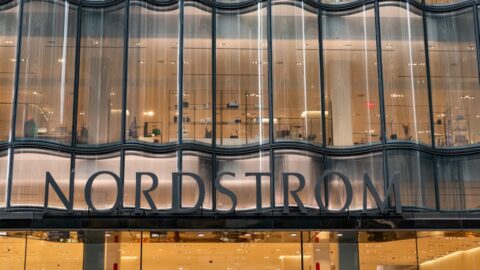Diversity is a vast topic with any number of challenges — but also with potential solutions that can build on each other to build a stronger whole. Two sessions at NRF examined these challenges from equally important angles: the retailer looking to expand diversity and the minority entrepreneur looking to build their brand.
One key piece of advice: retailers shouldn’t look at diversity-related issues in terms of cost. Finding time to mentor new leaders, investing in new products and working with groups that support minority issues shouldn’t be thought of in terms of their impact on the bottom line. Rather, these efforts should be about growing your potential audience.
“It’s not a zero-sum game,” said James Fripp, Chief Equality and Inclusion Officer at Yum! Brands. “This isn’t about abundance, this isn’t about winning, it’s about driving the top line through this whole notion of intersectionality in ways that you may not ever have thought of. In fact, it’s scary — but I would argue if you don’t get a little bit scared about not being diverse, you’re not going to be loved.”
Some of the other important advice for retailers looking to build a stronger, more diverse company include:
- Make mentorships more than words: Tomorrow’s leaders need support from established executives— but the relationship needs to offer more than advice, whether the mentor is a top executive or a store manager;
- Understand what new brands need: Brands spearheaded by minority entrepreneurs face unique challenges on top of those that any new product has to handle, but offering both exposure and financial support can benefit both parties;
- Make an effort to reflect your customers: Expanding diversity is a noble goal in itself, but retailers can still to keep shoppers top-of-mind by looking for initiatives, products and leaders that match their customers.
Mentorship is About Building Relationships, not Just Education
Mentorship has been identified is one of the key strategies for building a more diverse C-suite. Existing executives show the ropes to people who come from different backgrounds, including those promoted from within the company, to help them develop their talents, but education is just one part of the process. The mentor-mentee relationship needs to be as much about building rapport as career advancement.
“The line is people of color and women are overly mentored and under-sponsored,” said Fripp. “The reason for that is because when your mentorship is designed for the leader to give their insights, their coaching, their feedback and their support for that individual, it doesn’t necessarily mean they’re building an authentic relationship that leads to trust. It just means I’m giving you some guidance.”
Trust is the key takeaway here. The mentorship should be a two-way street that builds a relationship between the old and new guard. One strong method for building a stronger program is utilizing reverse mentorships, in which the younger or less experienced person educates their superior about topics where they’re an expert. For example, a talented up-and-comer may teach an established executive how to be more social media-savvy.
These sorts of relationship strategies shouldn’t be restricted to specific mentorship opportunities and should extend further than the company’s highest levels. Retailers can benefit from stronger employer-employee bonds across the enterprise, particularly during a period when attrition is high and retaining good talent is more valuable than ever.
“I’ve always said that people come to companies and they leave because of the boss, because of the interpersonal relationship that they have on a day-to-day basis,” said Sharon Leite, CEO of The Vitamin Shoppe. “That’s how they spend their time, and I think that engagement and really having that connection with the people that you work with, and building that community, is so incredibly important. I also believe that it’s even more important today because we have been so isolated. The ability to bring people together, to listen, to have that sense of community so that people feel like they belong — that’s an important part of building trust.”
Minority Entrepreneurs Benefit From Retailers Going Above and Beyond
Mentoring also can be a valuable tool to help an up-and-coming brand owner find a foothold for their product in your store, but advice only goes so far. Retailers need to be ready to open their wallets in addition to their minds if they want to not only bring minority entrepreneurs’ products onto their shelves but also help them succeed. In particular, retailers need to invest in the brand as much as the entrepreneur to help them develop and grow.
“I think where programs tend to fall short is when they don’t have that component — when it’s just the mentorship but lacks access to how we actually can really grow the business,” said Jihan Thompson, CEO of Swivel Beauty. “How can you get more people knowing about your product and then people buying your product? You’re supported when you’re being promoted on their site — that’s going to help people. Those types of things have to be coupled with the mentorship.”
The investment also can be more direct, especially when it comes to minority-owned brands. Regina Gwynn, Co-Founder of Black Women Talk Tech, noted that funding tends to be a particular challenge for Black entrepreneurs running B2C companies. Providing funds to help them grow their business is certainly helpful, but understanding the restraints of a small company trying to get off the ground, and offering favorable payment terms to get their products in your stores, can be an even bigger boon.
“Not only do you have to think about getting the actual product onto the shelves, you have to look at your payment terms,” said Gwynn. “Oftentimes we’re going to need some of that money upfront. We’re going to need that money more quickly than [the traditional payment periods of] net 30, net 60, net 90, net 120. We’re not going to be able to give you 100,000 units up front — there needs to be a much more flexible conversation on how we can get some product onto the shelves as quickly as possible.”
Why a Good Diversity Program is an Integral Part of Any Operation
Building diverse leadership and working with diverse brands aren’t headline-grabbing projects, but that’s because these initiatives have become baseline expectations for an ever-more diverse population. Retailers should still strive to have greater minority representation in both leadership and product selection, because they reflect the population they serve.
“If you’re not relevant, you won’t connect with the culture out there today,” said Yum! Brands’ Fripp. “By the way, those cultures are mixed and mingled and commingled. That’s what our consumers today find cool. If you’re not relevant, you won’t be successful. In order to be successful, you need to have everybody at the table.”
Fashion retailers in particular can benefit from heeding this lesson. When Saks OFF 5TH partnered with Phluid Project, an LGBTQ-owned gender-neutral apparel company, to release an exclusive Pride collection in June 2021, it wasn’t just to make a statement — it was to show its shoppers the retailer was in tune with their wants.
“We’re a fashion brand,” said Paige Thomas, President and CEO of Saks OFF 5TH. “Apparel and fashion, the essence of it, allows people to show up in their authentic way and show off who they are. I think it actually makes us stronger as a retailer to really push this initiative forward, so that when people come to the store or the website, they feel like we get it.”
With this in mind, the ultimate goal should be for diversity efforts to become just a normal part of operations. Supporting minority businesses and leaders shouldn’t be considered any different than keeping shelves stocked or offering competitive prices. In the end, it’s all about meeting customers’ expectations.
“Represent the communities that you serve and embody that in your entire organization,” said The Vitamin Shoppe’s Leite. “When it becomes who you are and what you believe, it doesn’t become a topic, it doesn’t become a line item — it just becomes what you do. That’s the journey that we’re on, and it’s not about the event. It’s not about it’s the ‘initiative of the day.’ It just is who you are and what your company is all about.”













